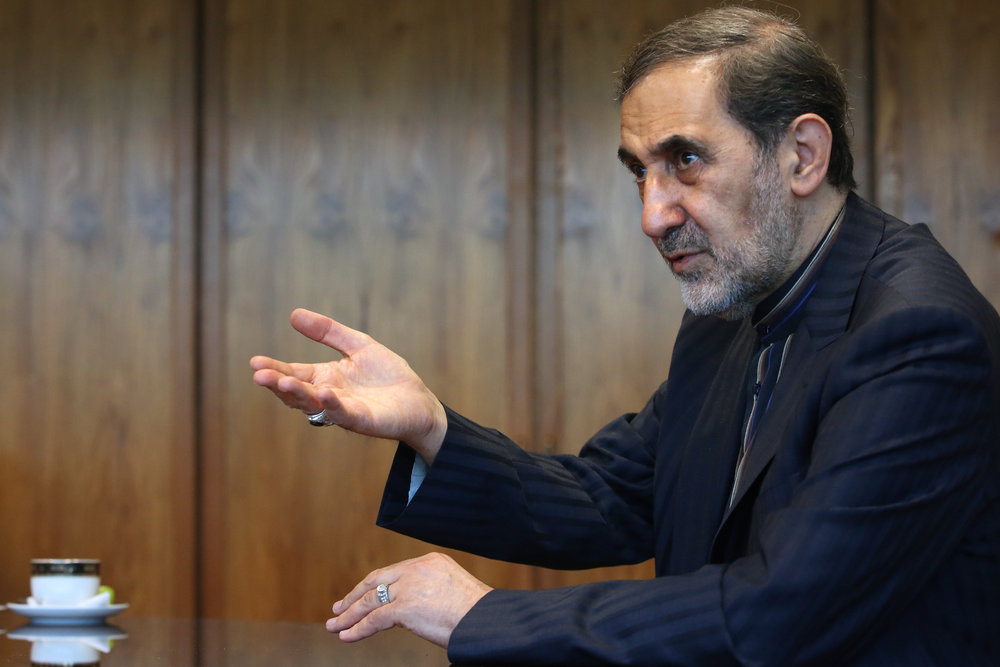Velayati advises France against meddling in Iran’s affairs

TEHRAN – Ali Akbar Velayati, a top advisor to Leader of the Islamic Revolution, has advised France against meddling in Iran’s internal affairs, particularly its missile program.
French President Emanuel Macron said on Friday that Tehran should clarify the strategy around its ballistic missile program and should be what he called “less aggressive” in the region.
“It is not to the benefit of Mr. Macron and France to interfere in the missile issue and the strategic affairs of the Islamic Republic of Iran, which we deem as very sensitive issues,” Velayati said in a Saturday interview with IRIB news.
Such interference, Velayati warned, will have no impact other than diminishing the French government’s credibility in Iran’s eyes.
“What does this issue have to do with Mr. Macron? Who is he at all to interfere? If he wants relations between Iran and France to grow then he should try not to interfere in these issues,” the veteran politician added.
“No country would bargain over its national interests,” Velayati says.
The top advisor also ruled out the possibility of any negotiations on Iran’s missile program.
“No country would bargain over its national interests,” he said.
Earlier in November, Macron paid a visit to Saudi Arabia, during which he voiced concerns about Tehran’s ballistic missile program, saying, “There are negotiations we need to start on Iran’s ballistic missiles.”
After Iran signed a nuclear agreement with six world powers in 2015, France sought to normalize relations with Tehran. However, in recent weeks, tensions between the two countries have risen.
Following Macron’s visit to Saudi Arabia, Tehran said the French president should take a clearer stance and to “gauge Middle East developments with more awareness.”
Macron’s inconsistent remarks regarding the nuclear deal or the JCPOA, Tehran’s missile program and its role in the region has angered Iran, but he doesn’t seem to see his stance as contradictory.
“We want an Iran that is a less aggressive power and for its ballistic missile program to be curtailed. But Iran is a regional power and we speak to them,” Macron said at a press conference in Gothenburg, Sweden on Friday.
He also said France would not take sides between Shia and Sunni, pointing to the disputes between Iran and Saudi Arabia, which have severed diplomatic ties since nearly two years ago.
To make matters worse, Saad Hariri, who resigned as Lebanon’s prime minister this month while strongly criticizing Iran’s role in the region, arrived in Paris on Saturday. He had announced his resignation while on an official visit to Saudi Arabia.
Now, France is trying to play a “mediatory role” to ease tensions across the region.
Macron is also slated to visit Iran by the year-end at the invitation of President Rouhani to bridge the gap between the two sides’ positions on Tehran’s missile program and discuss other issues.
Macron’s visit to Iran would be the first by a French head of state or government since 1971.
Foreign Ministry spokesman Bahram Qassemi announced last week that “Macron’s position on Iran’s missile program was not accurate and we would like to ask for more consideration in taking such positions.”
Qassemi said Macron’s visit to Tehran can help clear up misunderstandings over Iran’s missile program.
“His visit can prove helpful in lessening differences between the two countries on this issue,” Qassemi added.
Tehran has repeatedly said that its missile program is for defense purposes and is not up for negotiation.
MH/PA
